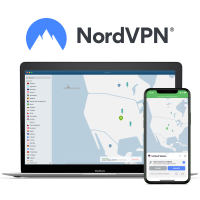How much should a VPN cost?
When it comes to online privacy, how much should you be paying?

You may think to get the best VPN you need to pay top-shelf prices, but this isn't actually true. There are some great cheap VPNs out there that work just as well (if not better) than their more expensive counterparts.
Here we'll explore how much a VPN should cost, what impacts VPN price and why it may be less expensive than you think.
How much should a VPN cost?
Okay, I'll admit it – this is a difficult question to answer outright as VPN cost can vary wildly depending on the provider, but in the interest of fairness I'll say, based on our testing, a good VPN shouldn't cost more than $6.67 per month.
You may think this is specific, and that's because it is – in our testing to find the best VPN on the market, $6.67 per month is the price of the most expensive provider we recommend, ExpressVPN. In our top VPN buying guide, all of the VPNs are this price or lower, with the majority being lower.
However, our top-rated provider, NordVPN, is actually a fair whack cheaper, coming in at $3.09 per month. For that, you'll get excellent privacy, the ability to unblock streaming sites worldwide, and some of the fastest connection speeds we've seen.
This all comes with a caveat, however – if you're looking for a specialized VPN, you're likely going to end up paying more for it, but for good reason. Take Astrill VPN, for example. While it may cost up $30 per month for a one-month contract (going down to $15 per month for a yearly contract), it's one of the best VPNs for China. So, while the price tag may be pretty hefty, it's actually worth paying for to get around content blocks and other restrictions if you really need that niche use-case.
The best VPN at an excellent price: NordVPN
In our testing, NordVPN came out on top as the best VPN thanks to its comprehensive privacy package, streaming site unblocking and malware protection, and super fast connection speeds.
All this from just $3.09 per month, and there's even a 30-day money-back guaratee which allows you to try it out, risk-free.
Does contract length impact VPN cost?
If you're looking for a VPN bargain, you're better off looking at a long-term contract rather than a one-month rolling contract. This can drastically slash the price of your VPN per month.
Sign up to get the BEST of Tom's Guide direct to your inbox.
Get instant access to breaking news, the hottest reviews, great deals and helpful tips.
Take NordVPN, for example. A one-month standard contract is $12.99. However, if you go for a 24-month standard contract, this price drops to just $3.09 per month.
It may be a little daunting to sign up for two years of a contract, but thankfully NordVPN (and just about every other VPN provider) has a 30-day money-back guarantee, which means you can try them out and if they're not for you, you can get a refund.
Should I use a free VPN?
I couldn't talk about the price of VPNs without mentioning that for some VPNs, you don't have to pay anything at all. It's important to note, however, that with some free VPNs you really get what you pay for – which is nothing.
It's also important to note that while the VPN may be free monetarily, you will be paying with something else – whether this is via ads, your data, or a stripped-back service compared to the provider's premium one. Many people use VPNs to avoid things like ads, and at worse this could mean your data being tracked and/or sold on to third parties.
It can be difficult to tell which free options are actually trustworthy. However we've tested a whole load so you don't have to take the risk. Our guide to the best free VPNs collates all the top free options so you can use them without being worried about your data.
With this being said, it's still important to note that free VPNs can't live up to the performance of a premium product. There are also some excellent cheap providers out there, so you can stay fully protected on a budget – Surfshark offers unlimited connections and blisteringly fast speeds for less than $2.50 per month, for example. But, if you're only using a VPN for casual rather than everyday use, a free VPN should serve you just fine.
Should I pay more for a VPN with extra features?
There are many excellent VPNs out there, so a lot of VPN providers now offer extras in order to entice you into choosing them.
This can include dedicated IPs, cyber insurance, password managers or even full cybersecurity suites. As VPNs are dedicated to keeping you safe online, it makes sense that VPN providers would give you a one-stop shop for all your online safety needs.
This does not necessarily equal a hike in price, however. For example, one of the best budget VPNs, Surfshark, offers a malware, ad and malicious site blocking through its CleanWeb feature. This is part of its Surfshark One subscription, which starts from just 50 cents more than its standard VPN.
Speaking of Surfshark, it also offers a service to keep you safe online as part of all of its plans (including standard) through Alternative ID. This service gives you an online-online identity, protecting your real data from exposure via data breaches or third-party selling.
Additionally, some VPN providers offer a whole host of features that don't cost a thing. Take Proton VPN for example - its email, cloud storage, password manager and calendar are all available for free.
Interestingly, while it is one of the most expensive VPNs in our top recommended lists, ExpressVPN is one of the few top providers that doesn't offer any added extras, barring its dedicated IP service.
So, while you may think a VPN having extra features is cause for it to be more expensive, this definitely is not always the case.

Olivia joined Tom's Guide in October 2023 as part of the core Tech Software team, and is currently VPN Commissioning Editor. She regularly uses VPNs to make sure they deliver what they promise, and specializes in testing VPNs with streaming sites.

